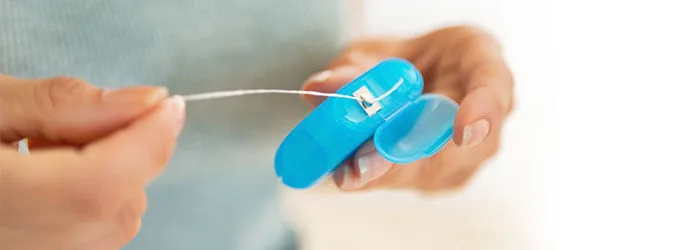
During ancient times
Over the years, anthropologists have found evidence that ancient people used various implements such as pointed sticks for interdental cleaning.
The beginning
But according to most sources, credit for the invention of dental floss as we know it goes to a New Orleans dentist, who in 1815 began advising his patients to use a thin silk thread to clean between their teeth.
The evolution of dental floss (1882-1896)
The idea caught on, and in 1882 a company called the Codman and Shurtleft Company, based in Randolph, Massachusetts, began marketing an unwaxed silk dental floss. This was followed in 1896 by the first dental floss from Johnson & Johnson. The New Jersey-based J&J took out a patent for dental floss in 1898 that was made from the same silk material used by doctors for silk stitches.
The evolution of dental floss (1940-1950)
During the 1940s, nylon replaced silk as the material for dental floss-its consistent texture and resistance to shredding were an improvement over the silk versions. The use of nylon also allowed for the development of waxed floss in the 1940s, and for the development of dental tape in the 1950s.
Today
Since then, the variety of types of dental floss has expanded to include newer materials such as Gore-Tex, and different textures such as spongy floss and soft floss. And today's floss has other features to make flossing easier. For example, floss with stiffened ends is designed to help with flossing around braces or other dental appliances.
Today, floss is a key part of twice daily brushing, daily flossing, and regular use of a mouthwash that make up a healthy routine for maintaining your oral health
Related Articles
Sign Up
for expert advice and exclusive offers







